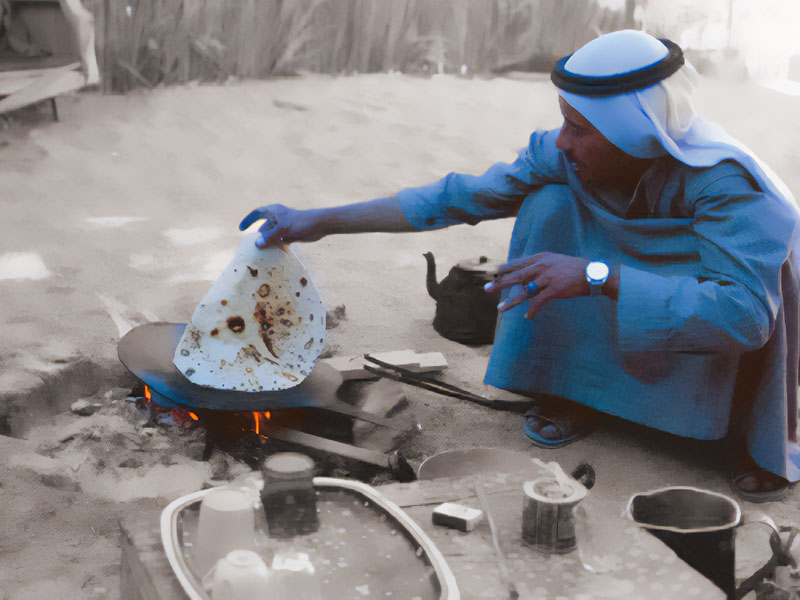Food Memory: The Bases Of The Nutritional System And Its Traditions
Issue 11

Abdullah Harhar (Morocco)
The research also attempts to decode the human action, analyzing its message and highlighting the nutritional behavior. All these aspects are seen as a culture characterizing our group if we accept Abdall al Orwi’s statement. Al Orwi believes that every human community has what distinguishes it from other groups. The research starts from certain particulars, national or local. These particulars enrich our civilization and experience with their cultural depth. The recent nutritional experience of the Warrayne in particular and the human being generally, is not an outcome of the present. It is an experience stems its genunity and essence from the reaction of the human being with his environment and history. The thesis says man had accumulated and still accumulates nutritional experience taking advantage of the potentialities and conditions of the present. Man has successfully achieved all this without getting rid of the past experience; such an experience embodies famines and epidemics as well as abundance and benevolence. According to the French sociologist John Difinyou, the past remains an important factor in the community’s life. However, it is impossible to apprehend the contemporary nutritional behavior; its choices and techniques, unless the memory is retrieved or at least scientifically reconstructed replicating what remains of the memory. Unfortunately the memory dies or at least fades whenever we loose an elderly person. Moreover, the informants of this research used to tackle sadly these conflicting issues. Sometimes they do so with an air of pride. In these cases the body and the memory are both stamped. We deduce that man has never succumbed to poverty, draught or war. He is neither confident nor relaxed about the times of affluence. He is acquainted with being attentive and alert. This is best illustrated in the saying that goes “time is not stable”. Time here, according to the Moroccan wisdom, is triple; the store, which indicates power, the valley and fire.







































































